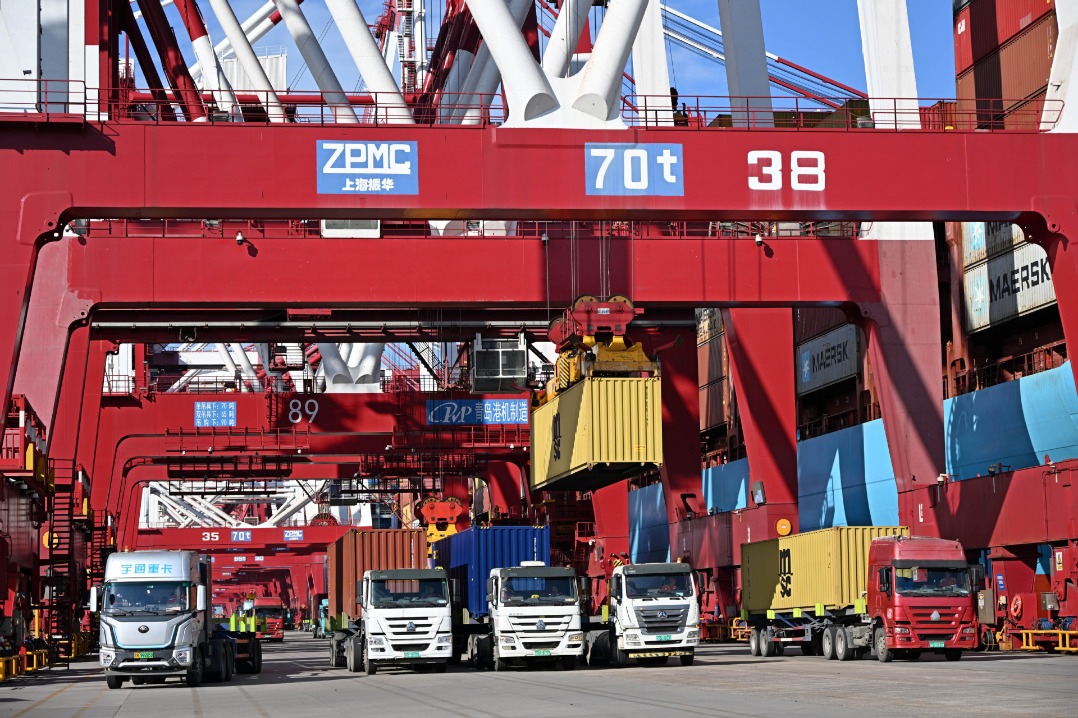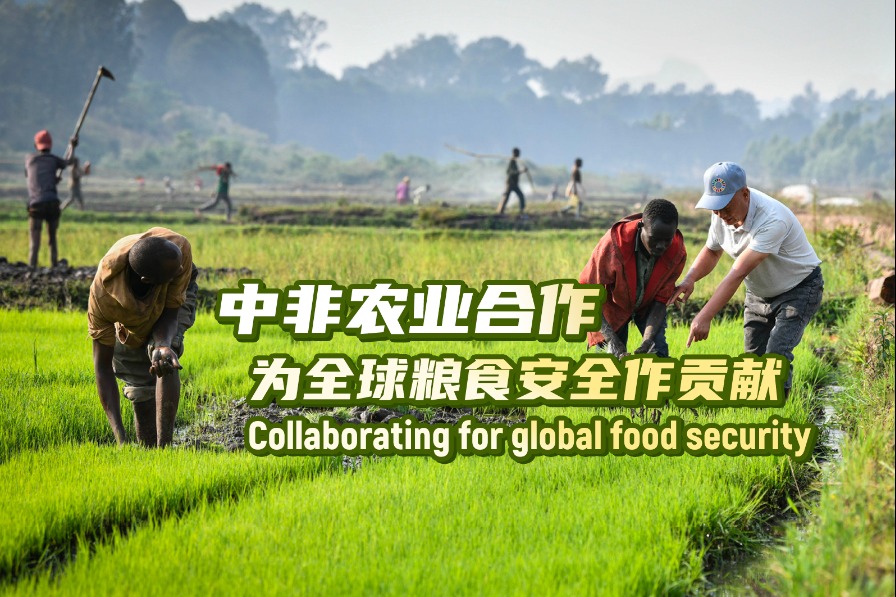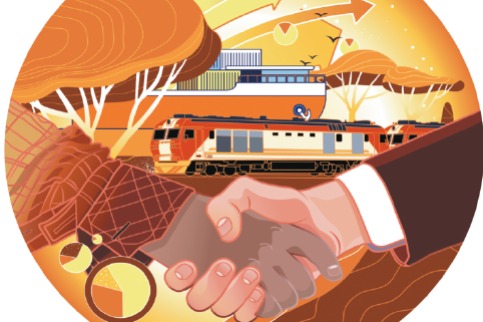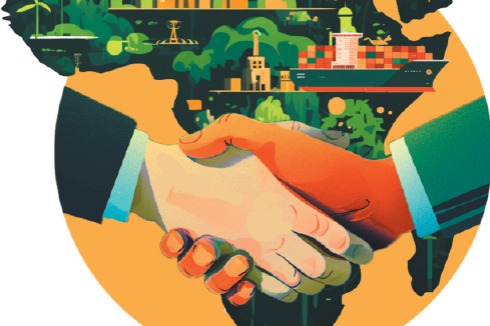Sino-African camaraderie in its prime stage


In the complex tapestry of African post-colonial development diplomacy, Sino-African cooperation has upended the donor-beneficiary narrative and precipitated a win-win infrastructural and transformational development in a few years. As a result, Africa will account for 11 of the world's 20 fastest-growing economies in 2024. As the global economy emerges from the dramatic supply chain disruptions, Africa is emerging as the next pole of growth.
Recent geopolitical upheaval and geo-economic crises have escalated tensions in Africa. Notwithstanding the coups and defaults, with the post-Cold War order rickety, Africa's huge arable land area, rare earth minerals highly sought for the energy transition, oil and natural gas, fisheries and timber, and a young population have become assets and are instrumental in African leaders getting invited to attend summits from China to Europe to the United States.
While population growth is slowing in every major economy, Africa, with a billion and a half people today, is expected to contribute a major percentage of the young people entering the global workforce by the 2030s. By capitalizing on its natural resources and youths, Africa can become the engine of labor dynamics in the decades to come. Perceptive statesmanship can be the forerunner in these jamborees of summits for partnerships that outlast the one-way ticket to exploitation.
Africa is not merely an arena for Sino-US contest, as it has impartially steered its international relations to the benefit of all its partners. Africa has cemented summit-level partnerships with China, the European Union, the Gulf countries and the US(in alphabetical order). The Africa-EU partnership is a multi-actor partnership including non-state organizations. The US has released an Africa strategy, in which it undergirds the continent's critical locus to advance US global priorities.
It is Africa's fast-growing young population, largest free trade area, most diverse ecosystems, and one of the world's largest regional voting groups in the UN that is the harbinger of these partnerships. Moreover, it is presumed to help tackle the climate crisis, address global food insecurity, strengthen an open and stable world order, shape the rules of the world on vital issues such as trade, cybersecurity and emerging technologies, and combat terrorism and transnational crimes.
Nonetheless, unlike the aforementioned partnerships that front-load their aim against Africa's pressing infrastructure primacies, Sino-African cooperation is mutually beneficial in nature. Sino-African ventures in human development and critical infrastructure have transformed the lives of millions of African people in less than a decade. Life expectancy, a major indicator of livelihood security, has been augmented in the past two decades to a degree never realized before.
Ethiopia is an apt example of such a transformation. In Ethiopia, investments have given birth to an unprecedented thousands of kilometers of paved roads, a major railway and high-tension transmission lines fed by clean energy from 20 new hydro-dams, which in turn are powering new industrial parks, rural towns and agricultural hinterlands. More than 380 higher education institutions including 50 public universities and modern cities have been built in record time in the country. To cap it all, life expectancy has increased by more than 20 years in two decades.
The resurging advent of China on Africa's development front follows the game-changing Tanzania-Zambia Railway built by China in the 1970s. Today, Sino-African camaraderie is in its prime stage, with investments, under the Belt and Road Initiative framework, fueling infrastructure and industrial development in Africa. China is now the main trading partner of Africa. South-South cooperation is indeed in full bloom, despite the relentless Western media labeling the investments as a tool to set a "debt trap".
China has partnered with Africa in financing, technology transfer and human resources development. Hence, Africa's sustained rapid and broad-based growth, which hinges on public-private investments, agricultural transformation, a consumer goods revolution and emerging export industries, will facilitate a rapid pace of economic expansion.
The massive investments in public infrastructure deliver a wide range of public goods while simultaneously propping up the African private sector, which too is building and maintaining brand-new public facilities. An agricultural transformation, involving a proliferation of modern commercial farms as well as increasing the productivity of smallholder farmers, is a realistic possibility in the next few years. This transformation could become a key driver of rural economy-wide growth.
In the spirit of multilateralism and genuine efforts to uplift humankind, China has taken steps to fill in a colossal void in advancing human development and building agricultural and manufacturing infrastructure.
The author, a UN senior policy adviser in New York, is chair of the African Union Anti-Corruption Advisory Board and a professor of public policy at Addis Ababa University in Ethiopia.
The views don't necessarily reflect those of China Daily.
If you have a specific expertise, or would like to share your thought about our stories, then send us your writings at opinion@chinadaily.com.cn, and comment@chinadaily.com.cn.




































